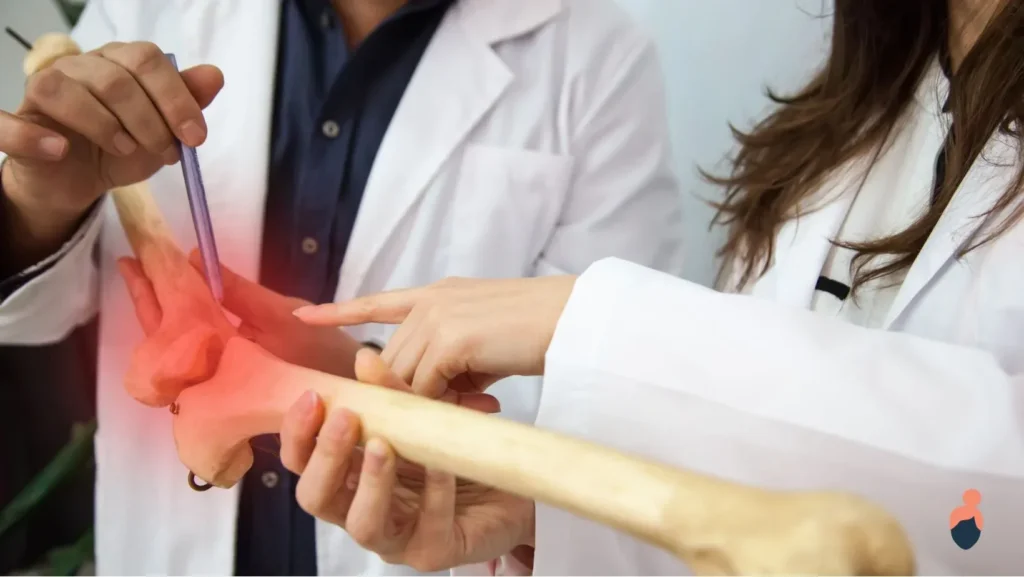Bone health plays a fundamental role in overall well-being, yet it is often underestimated until complications arise. Our bones provide structural support, protect vital organs, and store essential minerals. Maintaining strong bones throughout life is essential for mobility and preventing conditions such as osteoporosis and fractures.
But when should you seek the expertise of a specialist? This article explores the key signs that indicate the need for professional medical advice on bone health.
Key signs that you should consult a specialist
- Persistent bone pain or discomfort
Occasional aches and pains are common, especially with aging or after physical activity. However, persistent or unexplained bone pain may indicate an underlying condition such as osteoporosis, arthritis, or even a bone infection. If pain does not subside with rest or over-the-counter medication, consulting a specialist is advisable.
- Frequent fractures or bone weakness
If you experience fractures from minor falls or everyday activities, it could be a sign of weakened bones. This is particularly concerning for postmenopausal women and older adults who are at a higher risk of osteoporosis. A specialist can conduct bone density tests and recommend appropriate treatments to strengthen bones and reduce fracture risks.
- Family history of bone diseases
Genetics play a significant role in bone health. If you have a family history of osteoporosis or other bone disorders, you may be at a higher risk of developing similar conditions. Consulting a bone specialist early on can help in monitoring and taking preventive measures.
- Delayed healing after injuries
Bones typically heal within a certain timeframe, depending on the severity of the injury. However, if a fracture or bone injury takes significantly longer to heal, it may indicate underlying issues such as poor bone density or a metabolic bone disorder. Seeking medical evaluation can help identify the cause and ensure proper healing.
- Unexplained loss of height or postural changes
Gradual height loss or a hunched posture can be signs of vertebral fractures due to osteoporosis. If you notice such changes in yourself or a loved one, a bone health specialist can assess bone density and recommend lifestyle changes or treatments to prevent further deterioration.
Seeking treatment in Turkey: A reliable alternative
For individuals diagnosed with conditions affecting bone marrow, such as leukemia or aplastic anemia, a bone marrow transplant may be a necessary treatment. If you are exploring this option, understanding the cost of bone marrow transplantation in Turkey can help in making informed decisions.
Turkey has emerged as a leading destination for medical treatments, offering high-quality healthcare services at competitive prices. The country is home to state-of-the-art hospitals, internationally accredited clinics, and highly experienced specialists. Patients from around the world choose Turkey for its affordability, cutting-edge medical technology, and excellent patient care.
To ensure you receive the best possible care, Turquie Santé provides a platform to connect you with the top-rated clinics and experienced doctors in Turkey. Whether you need guidance on choosing the right specialist, understanding treatment options, or managing travel arrangements? check the platform.
When to take action
Timely medical attention is crucial for preventing serious bone-related conditions. Regular check-ups, a calcium-rich diet, vitamin D supplementation, and weight-bearing exercises are crucial for maintaining bone strength. However, if you experience any of the symptoms mentioned above, seeking medical advice promptly can help in diagnosing and managing bone health issues effectively.
Conclusion
Bone health should not be ignored. Recognizing the early warning signs and consulting a specialist when needed can make a significant difference in maintaining mobility and overall well-being. Whether it’s persistent pain, frequent fractures, or a family history of bone diseases, professional guidance can provide effective treatment and preventive strategies for lifelong bone strength.







